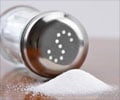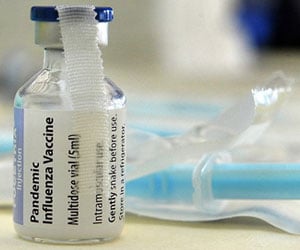Reducing salt intake may not help in controlling asthma, according to new research from The University of Nottingham.
The study contradicts previous studies that have suggested a link between low-sodium diets and improved asthma control.Dr Zara Pogson, clinical research fellow at The University of Nottingham, says that her study did not found any evidence that cutting back on salt helps asthma patients with their symptoms.
"Despite the clear benefit of a low-sodium diet on cardiovascular risk factors, there is no therapeutic benefit in the use of a low-sodium diet...on asthma control in our study population," Nature magazine quoted her as saying.
About 200 subjects completed the study during which the researchers evaluated the effect of changes in bronchial reactivity, a measure of asthma activity, on asthma patients who followed a strict low-sodium diet.
Each subject was either administered sodium supplements to approximate normal sodium intake of 80 millimoles per litre a day or placebo tablets for six weeks.
Dr. Pogson said that her team was expecting that the subjects on the low sodium intake would show improved clinical control of asthma symptoms based on a test of asthma activity, measures of lung function, asthma symptoms and use of asthma medication.
Advertisement
"We observed no difference in the outcome measures related to asthma activity in adults with asthma and bronchial reactivity who adopted a low-sodium diet for six weeks compared with those who did not, despite a final difference in daily sodium excretion of 50 mmol," Dr. Pogson wrote in the study report, published in the American Journal of Respiratory and Critical Care Medicine.
Advertisement
Source-ANI
RAS/L











